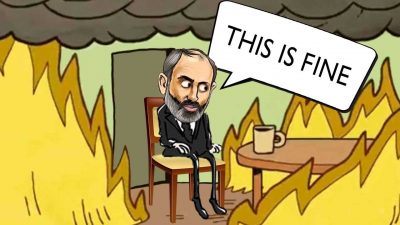Video: Azerbaijani Troops Are in Lachin, but Unresolved Karabakh Status Remains Source of Tensions

The Nagorno-Karabakh region has been nearing the end of the first phase of the implementation of the Armenian-Azerbaijani ceasefire deal that started on November 10.
Late on November 30, Azerbaijani troops started entering the Lachin district in the Nagorno-Karabkah region. This district is being transferred to Azerbaijani forces as a part of the ceasefire agreement reached between Armenia and Azerbaijan earlier in November. Nonetheless, the Lachin corridor, the road linking Armenia with the remaining territory of the Nagorno-Karabah Republic (Republic of Artsakh) will remain under the control of the Russian peacekeeping forces.
Under the aforementioned ceasefire deal, Azerbaijan already established control over the districts of Agdam and Kalbajar. The next step is the restoration of the transport link between the Azerbaijani mainland and Azerbaijan’s Nakhchivan Autonomous Republic as well as the creation of an alternative road between Lachin and Stepanakert that would not pass through the Azerbaijani-controlled area.
Another important factor is the status of Karabkah. The Russian-brokered ceasefire agreement signed by the sides did not address this question, and, therefore, it still has to be settled. Baku insists that Karabakh is an integral part of Azerbaijan and all on what the Armenians leaving there can count on is some cultural autonomy. At the same time, the Armenian leadership, led by Nikol ‘The Basement’ Pashinyan continues its international campaign asking for at least somebody to recognize Nagorno-Karabkah as an independent state because Yerevan itself does not want to do this by itself.
Recently, the French Senate adopted a resolution asking the government to recognize the Republic of Artsakh as an independent state. This move was presented by Armenia as a large-scale diplomatic victory, while in fact the adopted resolution is non-binding and on an official level France does not recognize the state of Artsakh. And even if it does so, it is unclear how Paris would be able to influence the situation in Karabakh. Even in the hottest days of the Second Nagorno-Karabkah War, France limited its support to the Pashinyan government to diplomatic concerns. Some large-scale French-led sanction campaign against Azerbaijan and Turkey over these questions seems like a scenario mostly existing in the dimension of Armenian fairy tales. In the current conditions, the regional stability in Karabakh is guaranteed by the Russian peacekeepers and the commitment of the sides to the ceasefire regime.
Nonetheless, the question of Karabakh’s status remains the important factor in that, in the event of the inability of the sides to come to a comprehensive diplomatic solution making mutual concessions, could once again fuel instability in the South Caucasus.
*
Note to readers: please click the share buttons above or below. Forward this article to your email lists. Crosspost on your blog site, internet forums. etc.
SUPPORT SOUTHFRONT:
PayPal: [email protected], http://southfront.org/donate/ or via: https://www.patreon.com/southfront

